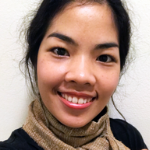Student Government of Seattle University, Seattle Central’s Associated Student Council, and the Washington Bus Education Fund invited candidates running for office in Washington to elaborate on their proposals on solving social, economic, and environmental issues through an online Zoom forum discussion on October 5 at 7 – 8.30 p.m.
There were seven candidates participating in the event, which included:
– Representative Pramila Jayapal, who is running for 7th Congressional District
– Marko Liias and Denny Heck, who are both running for Lieutenant Governor of Washington state
– Kirsten Harris-Talley and Chukundi Salisbury, who are both running for 37th Legislative District Position 2
– Sherae Lascelles and Frank Chopp, who are both running for 43rd Legislative District Position 2
– David Hackney and Zack Hudgins, who are both running for 11th Legislative District Position 1
This was a non-partisan public event that everyone was encouraged to attend, especially students and young people, whose futures will be affected greatly by their votes. Both student representatives, Isabelle Halaka from Seattle University and Sara Bukair from Seattle Central College, asked each candidate about questions and concerns curated from students and allowed each candidate a proper time frame for their answers.
Most questions revolved around racial and immigrant justice issues, wildfires, climate change, homelessness, and COVID-19’s impact on students.
Environmental justice for minority communities
The student hosts asked about how candidates have addressed climate change in the past and how they will continue doing so on the national level.
Representative Pramila Jayapal, running for 7th Congressional District, mentioned that she has been advocating for the Green New Deal with a big focus on jobs, justice, and decarbonization. In addition, she also works on climate resilience bills that focus on addressing environmental justice concerns for BIPOC (Black, Indigenous and People of Color) communities. She emphasized “putting BIPOC communities at the center of every climate bill that [they] do because at the end of the day these communities have been most disproportionately affected, and they need to be at the center of the solutions and also the results that come out of climate legislations that we pass.”
Homelessness in focus
The candidates were asked about their plans on combating the unhoused crisis and ways to ensure that this population gets the help they need.
Lieutenant Governor candidate Marko Liias believes that the current homelessness issue is rooted in our broken economy. Although the US is one of the world’s richest countries, people still face food and housing instability. His approach will start with higher taxation of the wealthy and reducing the tax barrier for those who are struggling. Then he dove into each layer of homelessness problems. He also shared his vision beyond just finding affordable homes for people. “We need to robustly invest in education pathways to make sure that everyone who is facing housing instability has a pathway out; not just a safe place to stay, but a job and educational opportunity to succeed.”
Climate change, one of the most discussed issues in the world
Climate change and global warming were brought up by the student representatives. They were curious about what solutions each candidate will pursue if elected.
Chukundi Salisbury, running for 37th Legislative District Position 2, as a life-long environmentalist, affirmed the urgency of climate change actions at all levels. He talked about the existing policies that the state has implemented, such as a ban on plastic bags and the attempt to elevate the Green New Deal at the state level. On top of this, he proposed Green Career Pathways, a program which allows young people to gain real-life experience in environmental sectors.
Each candidate shared their plans and determination to solve systemic and urgent social issues, talking about their past successes in making positive changes to society. Some even brought up their own experiences about the oppression they’ve faced and how it inspired them to take part in breaking through institutional barriers and fighting for justice for all.
In conclusion, the students and sponsor thanked the candidates for taking the time to answer their questions and provide details on their positions, showing genuine interest in making a difference for a better Washington. Candidates encouraged everyone to exercise their right to vote and share their voice.
Eligible voters must register to vote online or by mail by October 26, or can register to vote in person on November 3. Election day is on November 3, voters must deposit their ballot in an official drop box by 8 p.m.
To learn more about how to vote, view the following links:
Election Dates and Deadlines 2020
Register to vote in Washington
Author

Gift is a Programming AAS-T student and a Web Manager Consultant at the Seattle Collegian. She defines herself as a minimalist, who enjoys living low-waste and makes websites. Her goal is to create more awareness around sustainability in web design and how each of us can reduce carbon footprint as an individual. She enjoys improving the Collegian website as much as writing, baking, and making oat milk. Check out her website!











Be First to Comment